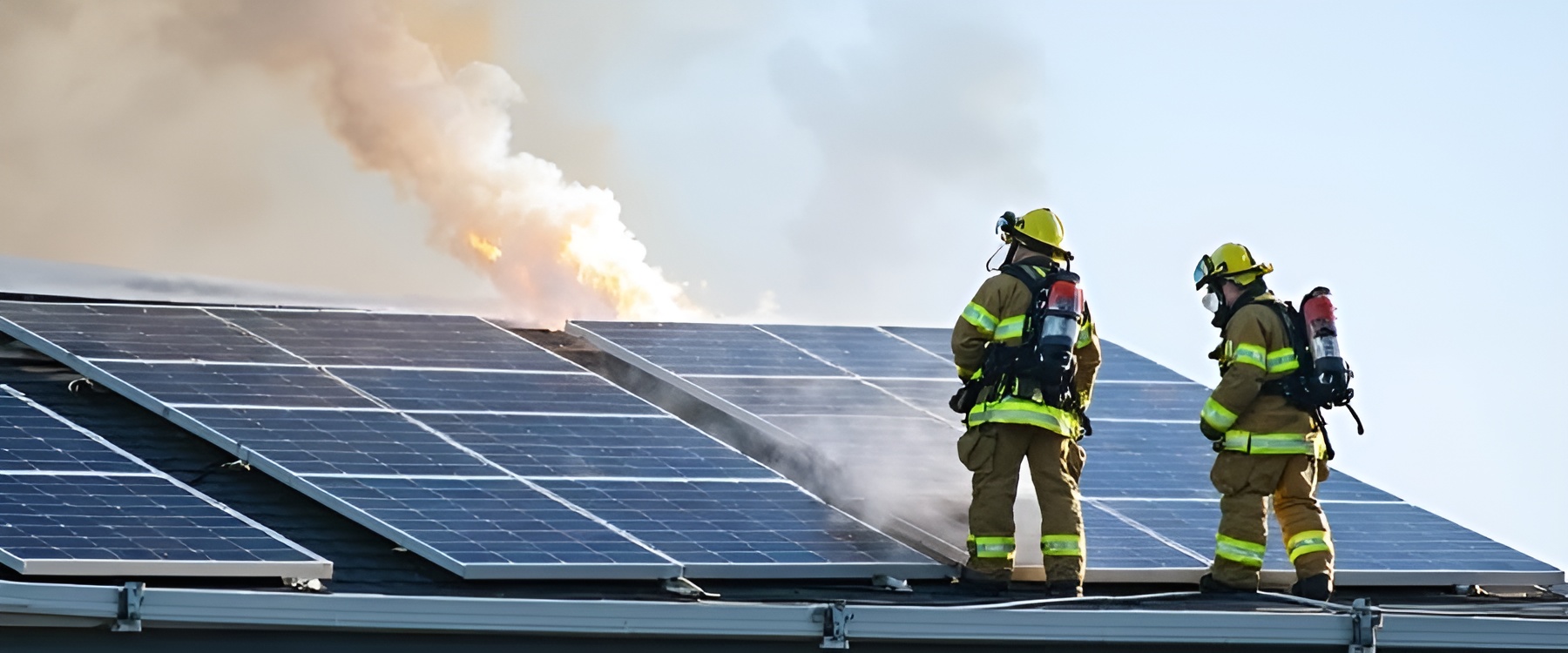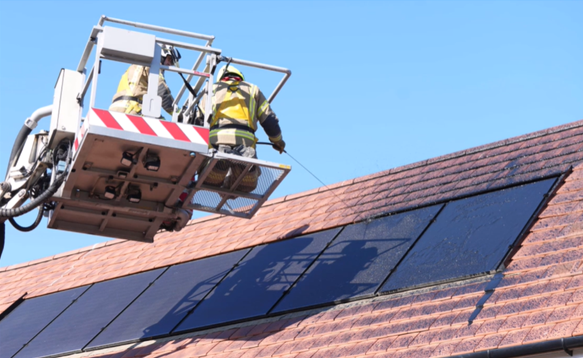
An exclusive report from The Independent has revealed that the number of solar panel fires has risen sharply in 2023 compared to previous years, leading to mounting concern among fire safety experts.
The data, acquired by the newspaper under freedom of information rules, showed that 66 fires related to solar panels had occurred since the beginning of 2023 up to July. This is a stark increase when compared to 63 fires for the whole of 2019. It was also found that there were “six times the number of fires involving solar panels last year compared with 10 years ago”.
Experts have warned that while the rising number of solar panel-related fires reflects the growing reliance on solar panels as an energy source amidst the cost-of-living crisis, it also highlights the limited regulation around them. As previously reported by the FPA, at the end of last year (November 2022), insurance company Zurich UK issued a caution to homeowners who had invested in solar panels to only use installers who were part of accredited schemes. It even called on the government to introduce a single accreditation scheme to counter the current lack of regulation. At the time, the Major Loss Manager for Zurich, Gillian Perry said: “We’re seeing a small but growing number of claims for solar panels, the most worrying of which are electrical fires.
“While the vast majority of installers follow good practice, poorly or incorrectly fitted solar panels can increase the risk of blazes.”
On 18 September 2023, a major fire related to solar panels broke out at a bungalow in Anglesey. Firefighters from the North Wales Fire and Rescue Service attended the property fire, which is part of an independent living complex run by Clwyd Alyn Housing, and later confirmed it had been caused by an electrical fault. As reported by North Wales Live, a solar panel and batteries were gutted in the blaze. Head of Technical, Innovation and Climate at Clwyd Alyn, Tom Boome said: “Everyone at the property is safe and we apologise for the worry and inconvenience caused. We believe this is an isolated incident, but as a precaution we have disconnected the batteries in all the homes at Min Yr Afon, while we work with partners to establish the facts.”
Another fire broke out at a council house in West London in August after a solar panel exploded on the roof. As reported by the Evening Standard, 25 firefighters spent two hours disabling the solar panels to avoid being electrocuted before they could extinguish the fire’s source. A spokesperson for the London Fire Brigade explained:
“PVStop, which is a black liquid polymer coating designed to cover solar panels like a liquid tarpaulin, was used to isolate power to ten solar panels.
“It works by blocking the sunlight that powers solar panels, so the process of converting light into electricity is stopped. The panels are then de-energised, and the risk of electrocution is greatly reduced so crews can get closer and prevent fire spreading from a roof to the rest of the building.”
Echoing the guidance of other industry sectors, Martyn Allen from Electrical Safety First said that homeowners should look for registered installers of solar PV panels, stating that this would “provide a better guarantee of safety and also redress, in the unlikely event of something going wrong”.
“We also need clarity of electrical safety legislation to ensure that solar photovoltaic (PV) installations are an integral part of obligatory regular inspection and testing,” he added.


